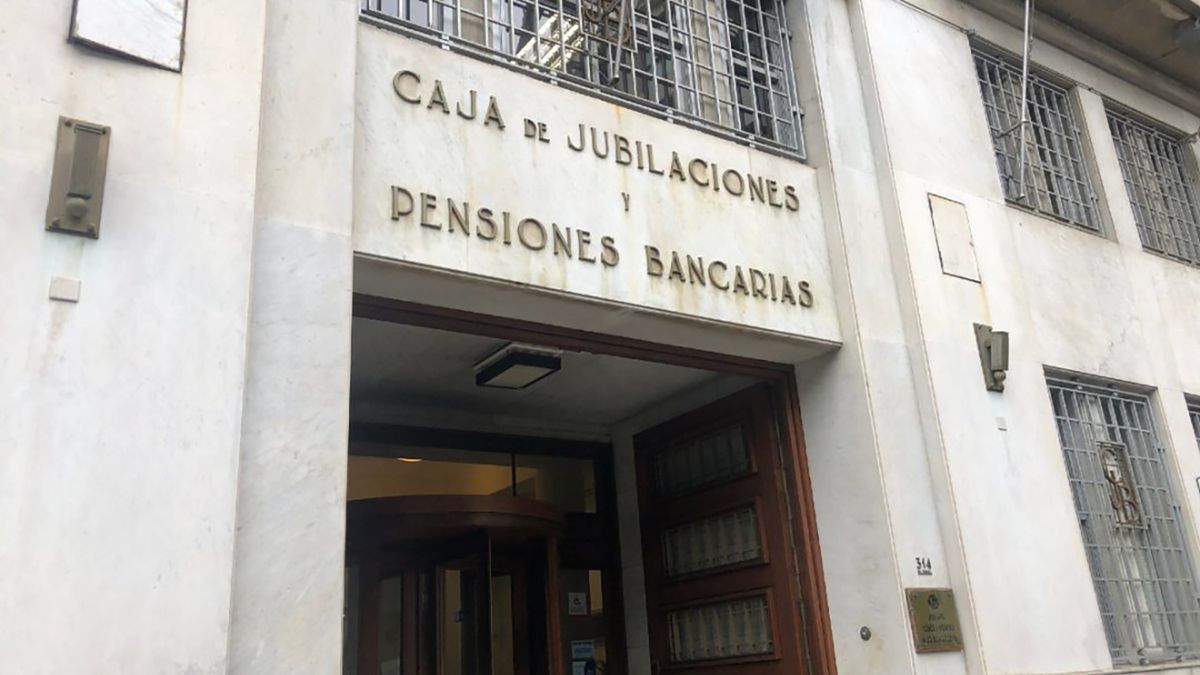The Association of Private Banks of Uruguay (ABPU) assured in an official statement that the Bank Retirement and Pension Fund (CJPB) it’s found “With the water up to the neck“, due to the “serious” situation of financial unsustainability that it faces.
From the ABPU they urge the national government to reach a “collective and global” negotiation that allows an immediate solution to this “urgent” problem, and that this “condemning” to the banking sector “a very complex future“, as well as “seriously compromising the viability” of the same.
According to the ABPU, Banks make employer contributions of 25.25% to which must be added the Complementary Employer Benefit (PCP) for a similar amount. In the general scheme the contributions are 7.5%.
Private banks claim that banks contribute 6 times more than the rest of the companies do, contributing with most of the financing of the Caja Bancaria. They assure that in 2022, of every 100 pesos collected in private banks, some 73 pesos went to contribution.
In the Association they understand that, like what was proposed in the approval of the social security reform, there is no place to increase the tax burden, since “the population cannot be asked to make an effort to save the Caja Bancaria“.
This situation would be exclusively the responsibility of the actors involved, in addition to ABPU itself, such as the national government, and the union of workers of the financial system, the Uruguayan Banking Association (AEBU), who make up the Caja Bancaria Working Group.
The private banks point out that the situation of the Caja Bancaria “was foreseeable”
The private banks point out that the “serious” situation of the Caja Bancaria “was foreseeable”, since It is a pay-as-you-go scheme with more liabilities than assets, who has passivities “well above average“, added to the” growing life expectancy of our collective.
They also maintain that “the magnitude of the funds required to rescue the CJPB is such that”It is not easy to reach an agreement for its financing“, and “no room for incremental reforms“, since, “the longer it is delayed, the more painful will be the measures to adopt”.
The PCP is not the solution to the Caja Bancaria, affirms the private bank
“Contrary to what some affirm, the PCP is not the solution”, they affirm from the private bank. “Not only because the underfunding is so important that it would not be corrected even by increasing the PCP to the maximum legally allowed”, but also “because of the consequences that this would generate”.
“The PCP taxes the credits that Uruguayans pay when they take out a consumer loan or a mortgage loan,” just like the businessman when he is going to invest and create employment. So increase the PCP “would result in an increase in the cost of credit to the population; something that would be unfair”, they emphasize.
The labor system, another problem according to private banks
For private banks, the Uruguay it must adapt a rigid labor system to the needs of today’s world. In this context, they argue that there has been an attack against the generation of employment and meritocracy in private banking, demotivating “those who make the most effort, because a large part of the compensation is linked to the mere passage of time.”
“There is no sustainable Banking Fund if there is no viable financial sector,” they remark. The fall in employment in the sector responds, according to ABPU, to labor rigidity and high costs that are uncoupled from the performance of workers.
In ABPU they indicated that the small Uruguayan financial market, in coexistence with the high operating costs, and the small geographical and political dimension of the country, make the market unprofitable and less attractive internationally.
Source: Ambito




